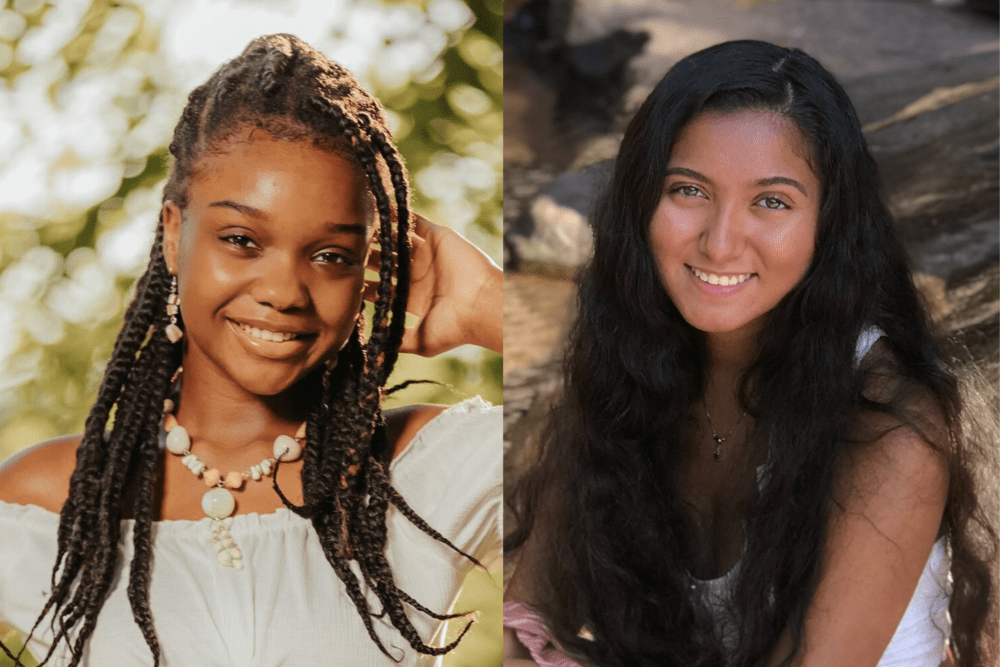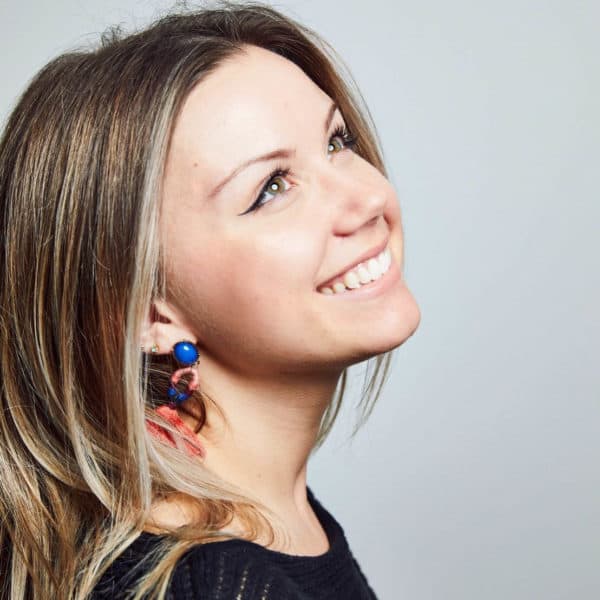Advertisement
Covering Climate Now 2021
Gen Z Activists On What's At Stake: 'The Climate Crisis Doesn't Affect Us All Equally'

A few years ago when Jade Lozada was in high school, she was given a task to think about how climate change has impacted her life.
It was something she hadn't considered up until that moment because writing was her passion — not science.
But after some thought, the 18 year old realized she could use her writing as a form of activism. She sat down and composed a poem titled “The Worst Crime” about the changing climate and its impacts on where she was born and raised, New York City.
“The worst crime I know men have committed is to turn nature into an oppressor,” she writes.
She was encouraged to write her searing poem after participating in a program called Girls Write Now, a writing and mentoring nonprofit that encourages Generation Z to use the power of the pen to enact change.
Lozada’s lifestyle in a concrete jungle meant she didn’t have a deep relationship with nature through outdoor activities like hiking and camping.
“My connection is really to this built environment, not something that is just natural to Earth,” she says of the city.
But whether they’re living in the middle of a city’s downtown or in a rural wooded area, her generation — known as Gen Z — are some of the most passionate activists behind climate change movements that center social justice.
Young climate justice activist Jayola Reid is also part of Girls Write Now. The 17-year-old South Bronx native lives in an area often described as “Asthma Alley,” where the risk of pediatric asthma rates are eight times higher than the national average.
Reid and a few friends attended the September 2019 climate strike in New York City. Similar strikes were occurring in places across the globe. Afterward, she started to do her own research on how climate change was impacting her community.
Soon enough, Reid was educating herself and “anyone who would listen” about environmental inequalities that the Bronx community faces because of their socio-economic status, she says.
“Although I have lived in the Bronx my whole life, I wasn't explicitly aware of everything that was going on here and the things that were going on for decades — the pollution, the asthma rates, the waste inequity,” she says.
Anger boiled over. These glaring problems plaguing her home were never discussed in school, she says. When she started informing her parents and friends on some of the large-scale issues, they became angry too.
“A lot of us were just upset at the fact that the system truly have failed us,” she says, “particularly the education system, the fact that they were able to get away with subjecting us to all this pollution in our own neighborhood and yet not even have a proper lesson about why it's there and who the culprits are.”
Advertisement
Armed with knowledge, Reid says she got to work and felt empowered to create change. Her parents became more civically engaged as a result of her activism, she says.
Together, Reid and her parents started to recognize how important, but often overlooked, local elections are on policies directly impacting their neighborhood. Reid isn’t old enough to vote yet, but says her parents are researching and voting for community leaders who are committed to addressing climate change impacts on the Bronx.
Lozada, the poet, hasn’t had as much success as Reid in getting her parents civically engaged. They are now more aware of the climate crisis and have general knowledge of city politics, she says.
Lozada was an organizer for the massive 2019 youth-led climate strikes in Manhattan but has now turned to other forms of climate activism. On the back end, she witnessed how strike organizers’ egos can play a role in presenting “a facade of empowerment,” as she describes it. Plus, her more introverted personality didn’t fit the typical mold of a loud activist hitting the streets with a megaphone.
She’s found that there are many other ways to be involved in the movement while staying true to yourself. Part of it is identifying how your personal story plays into the climate crisis, she says, and honing in on what you’re passionate about.
“Climate change is such an intricate issue that intersects with a ton of other social justice issues that may be more obvious and seemingly pertinent to your life,” she says. “I think you just have to investigate those connections to find where it is that it intersects with climate change and use that as your fuel for your specific role in the movement.”
The Worst Crime
By Jade Lozada
The worst crime I know men have committed is to turn nature into an oppressor.
I tend land; concrete gorges in Earth, pillared steel and brick,
burdenless and guiltless below its sky — the first witness and
last native to this island
at the joint of the ocean’s palm and the Hudson’s stretch
into us. An exodus from the diaspora for sins
of skin darkening for lack of sun and barren pockets.
Somewhere, we search for home. So we bleed joy into summers
enclosed in our beating heart labyrinthine barrios.
The croon of a singer who never kissed his mother’s land goodbye
laces and tangles treetops in the night,
glides into the southern current of the sea,
waters the pores of my concrete.
Cascading lyrics from our windows return
in lush plátano leaves on the sill.
When our words melt into English arroyos,
pavement, that mutilation of Manhattan island,
breaks open nature’s bounty: Grotesque, undulating heat
reverberates from asphalt, ricochets off brick
into the heartbeat of car stereos;
Diesel clouds halo above us;
Toxins pumped from Earth’s troves poison our breath.
Of their sear on our skin, their imprint on our lungs,
their toil in digging deep graves for early deaths.
Here lies the fate of the first natives:
To be mutilated as someone’s ancestors
mutilated Manahatta — razing forest,
burying water with families,
forcing brown bodies thereafter
to swallow oceans in order to taste home.
This story is part of Covering Climate Now, a global journalism collaboration of more than 400 news outlets committed to better coverage of the climate crisis. This year's theme is "living through the climate crisis."
Ashley Locke produced and edited this interview for broadcast with Jill Ryan. Serena McMahon adapted it for the web.
This segment aired on April 20, 2021.


